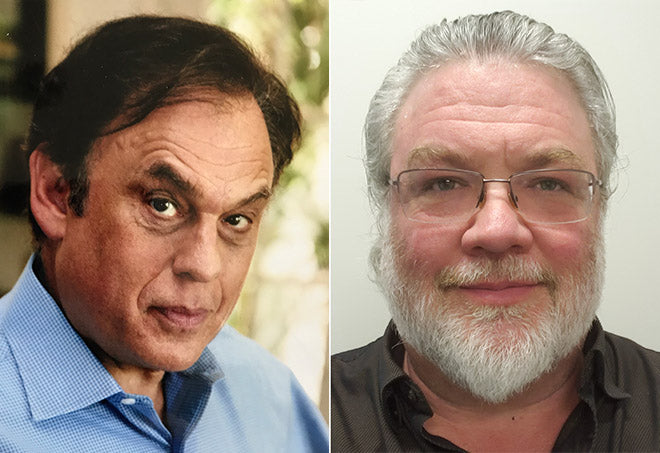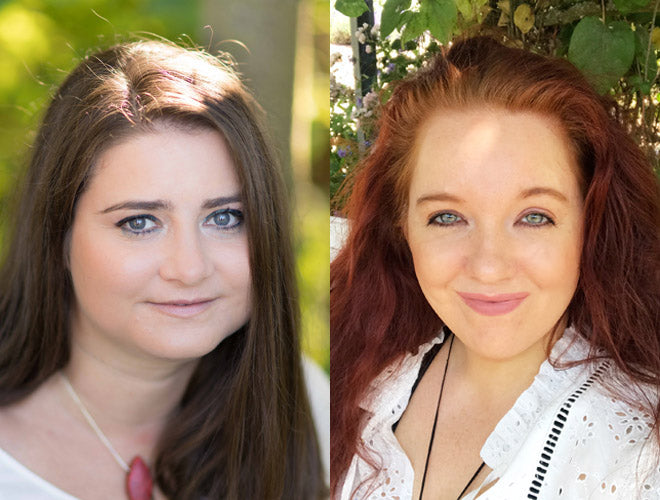
Interview with Dr. Earl Mindell and Prof. Gene Bruno: “Take good care of your blood and stay healthy!”
Interview with Dr. Earl Mindell and Prof. Gene Bruno: “Take good care of your blood and stay healthy!”
"Our blood is our 'life train', it transports useful and important substances through our organism. But it can also carry toxins that have been absorbed by the body - either through a conscious measure or unconsciously from the environment. The quality of our blood is crucial for our health. Therefore, we should know our body's detoxification mechanisms and use them to get rid of toxic substances." Dr. Earl Mindell and Prof. Gene Bruno , authors of the guide "Healthy Blood" , want to explain the important tasks our blood has to fulfill and why we should definitely support it through conscious detoxification.
In your new book you explain what we should know about blood and the body's natural detoxification mechanisms. Why is this so important for health?
Prof. Bruno: Our blood is the main transport route for useful as well as harmful substances in the body. In this vital fluid, things like vitamins, minerals, oxygen, hormones, but also heavy metals and toxins are transported through the cellular pathways. The chemical substances enter the blood as soon as they have been absorbed by the body - whether consciously or unconsciously if they come from the environment - and are distributed throughout the body via the bloodstream. If you know how to support the body's natural detoxification mechanisms, you can get rid of toxic substances more easily and thus promote health.
What components does blood actually consist of, and what functions do the individual components of blood have in the organism?
Prof. Bruno: We go into this question in detail in the second chapter of our book, Healthy Blood. In summary, there are lipids (cholesterol and triglycerides), glucose, minerals and many other substances that the blood carries and that play different roles in metabolism and health and well-being. But there are also structural components of the blood, for example hemoglobin, which carries the oxygen needed to produce energy. Hormones carried by the blood are chemical messengers whose job is to initiate a series of metabolic changes that are necessary to maintain health.
Blood tests are part of the standard medical treatment. What values are determined and what do they say about your health?
Prof. Bruno: Measuring the substances in the blood can show whether the body is functioning within normal parameters. If one or more of these substances are not within the normal range, it can indicate illness or simply that you should make appropriate lifestyle changes. For example, if total cholesterol and LDL cholesterol are too high, you should change your diet to eat less saturated fats and more vegetables, whole grains and pulses. Regular physical exercise also plays a big role. Such measures can prevent cardiovascular disease. A normal blood test can give you the insight that you should address such things.
Around 1900, it was discovered that blood cannot simply be transferred from one person to another, but that there are certain blood groups that react differently to one another. What are the differences and what needs to be taken into account during a transfusion?
Prof. Bruno: Austrian scientist Karl Landsteiner discovered that each person has a specific blood type based on the antigens inherited from their parents that are on the surface of their red blood cells (RBCs). If you have inherited the A antigen, you have blood type A, and your plasma contains B antibodies. If you have inherited the B antigen, you have blood type B, and your plasma contains A antibodies. If you have inherited both antigens, you have blood type AB, and your plasma contains neither A nor B antibodies. If you have inherited neither A nor B antigens, so your RBC surface is 'empty', you have blood type O, and your plasma contains both A and B antibodies. The purpose of the RBC antigens is still unclear, but it is clear that they trigger antibody reactions when they come into contact with incompatible red blood cells. If someone receives a blood transfusion from their blood group, their plasma antibodies will not react and their immune system will recognize the incoming antigens as 'friends' rather than 'enemies'. However, a transfusion of blood from a different blood group could be fatal.
Everything we eat and drink every day has a major impact on our blood and therefore on our health. What nutrients does the blood need to perform its functions and what factors have a negative impact on blood health?
Dr. Mindell: It is true that the food we eat every day affects our blood health and our overall health. To improve your blood health, here are some things to do: Just half an hour of exercise a day will have a positive effect on your blood and cardiovascular system. Your body needs macronutrients, which are carbohydrates, fats, protein, fiber and water. These nutrients, except water, are broken down in the digestive system so that they can provide energy for the body. Carbohydrates are the most readily used as fuel. Fiber moves through the digestive tract and is excreted relatively unchanged in the stool. But it feeds the "friendly" gut bacteria that are essential for health. Fats are the most concentrated form of energy in our diet, and protein is one of the most important substances for maintaining health. Examples of foods that promote healthy blood include onions and garlic. Examples of substances that can cause problems in your blood include heavy metals, solder on copper wires, pesticides, cigarette smoke and latex paint.
A balanced diet is the most important way to maintain good health, but nutritional supplements can also help purify the blood. What substances are these and how do you best take them?
Dr. Mindell: Unfortunately, a balanced diet is a thing of the past. Most people today eat processed and convenience foods. It is estimated that, for example, in the United States, only three percent of the population consumes all the necessary vitamins, minerals and amino acids in the current diet. The micronutrients necessary for optimal health are the following: vitamin A, B-complex vitamins, vitamins C, D, E and K; minerals such as calcium, potassium, sodium, magnesium, copper, iron, iodine, manganese, selenium and zinc. These nutrients are obtained from the appropriate foods. If these are not available in sufficient quantities, natural supplements should be used. Vitamin A is important for vision. The B-complex vitamins (B 1 , B 2 , B 3 , B 12 and folic acid) work together to help the body convert macronutrients into energy. Vitamin C supports the synthesis of proteins, including collagen, the main protein in connective tissue. Vitamin D enables the absorption of calcium and magnesium. Vitamin K is a powerful antioxidant that helps the body avoid damage caused by free radicals. The above-mentioned minerals also contribute significantly to bone and brain health.
In addition to nutrition and nutritional supplements, the guide also presents so-called complementary therapies that are helpful in detoxification and maintaining blood health. What options are there here?
Dr. Mindell: Complementary therapies to promote the detoxification process and maintain blood health include sauna therapy, hydrotherapy, massage therapy, chelation therapy and meditation. We briefly introduce these therapies in the last chapter of our book. However, ideally they should be carried out or supervised by medically trained personnel, which is why we have refrained from providing detailed instructions.
Tip:
Earl Mindell and Gene Bruno: Healthy Blood. What your blood can do - Why you should take good care of your blood - How to cleanse and detoxify your blood. Mankau Verlag, 1st edition March 2020, paperback, 13.5 x 21.5 cm, 238 pages, 16.90 euros (D) / 17.40 euros (A), ISBN 978-3-86374-547-9
Link recommendations:
More information about the book “Healthy Blood”
More about Dr. Earl Mindell
More about Prof. Gene Bruno
To the Internet forum with our authors and readers











